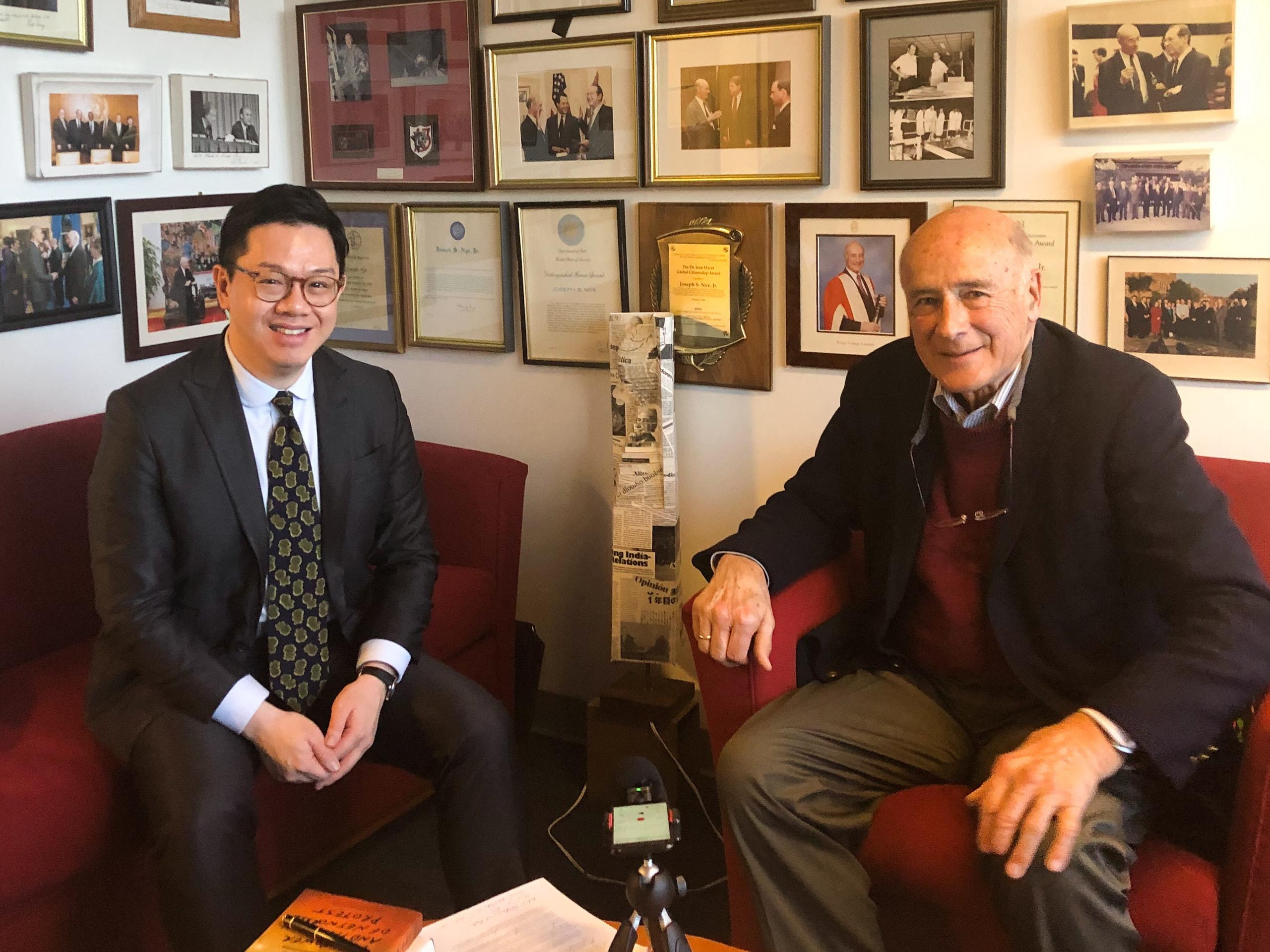
I met Joseph Nye once, in March 2019, in his Harvard Kennedy School office. It was a modest space, one of many in a multitude of rooms. But even in that understated setting, he stood out. Not only as a Harvard professor, but as an extraordinary person and intellect whose singular influence fundamentally redefined how we think about international relations. I was one of many who came through his office that day, scheduled between a constant stream of students and visiting government delegations. That said everything.
Professor Nye was known not just for developing the terms "soft power," "smart power," and "neoliberalism" during his storied career, but for creating a new framework for diplomacy and global affairs — one that emphasized attraction over coercion, and values over might. In our conversation, he spoke of cooperation and rivalry not as contradictions, but as coexisting forces, especially in the context of U.S.-China relations.
That interview, published by China-US Focus, our in-house digital brand, as "Condemned to Cooperate, or Be Condemned," came at a critical hinge point in history. It was the 40th anniversary of diplomatic recognition between the United States and China, a time of reflection, celebration, and uncertainty. The world had not yet entered the storm of a global pandemic. But the mood was shifting, and Professor Nye saw it clearly.
"We can't solve global problems without cooperation between China and the U.S.," he said then. His words were not just a warning, but a call to action. Climate change, cyber governance, pandemics — these were the arenas he identified as impossible to confront in isolation. What he called for was "cooperative rivalry," a strategic blend of competition and collaboration, rooted in realism but aimed at shared survival.
During our conversation, I was struck by his generosity — of time, of knowledge, and of quiet authority — which gave his concept of 'soft power' a tangible, human dimension. It was not just an academic term confined to the realm of nation-states, but a way of being, expressed in the everyday.
While that was the only time I met Professor Nye in-person, I was privileged to speak with him virtually on several occasions thereafter. In a conversation we had in 2022, he returned again to the idea of "power with" others, rather than "power over" them. That shift in mindset, he believed, was essential for a more peaceful, interconnected world. His was a vision of shared responsibility, rooted in realism but open to hope. And for those of us working in diplomacy, education, and exchange, his words continue to resonate.
Joseph Nye was extraordinary, even among the extraordinary. His passing is a grand loss, but his ideas will continue to live on, especially now, when the world is again searching for a path forward. I, like so many, feel honored to have known him.
We at the China-United States Exchange Foundation send our sincerest condolences to Professor Nye's family and loved ones during this time.
James Chau
President
China-United States Exchange Foundation (CUSEF)
